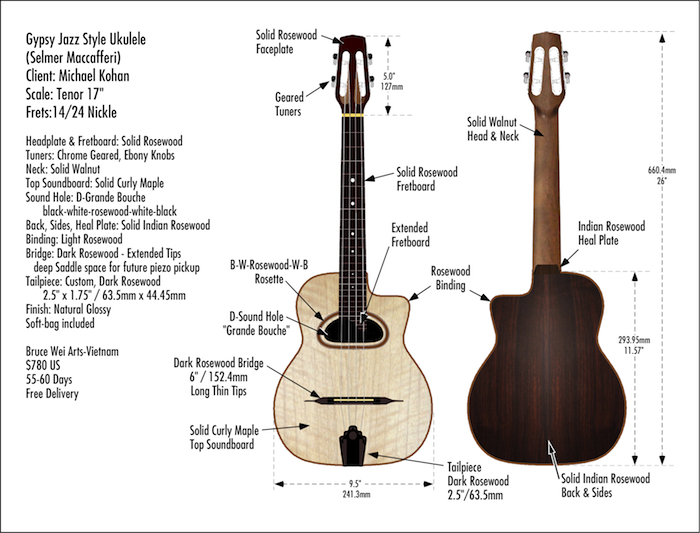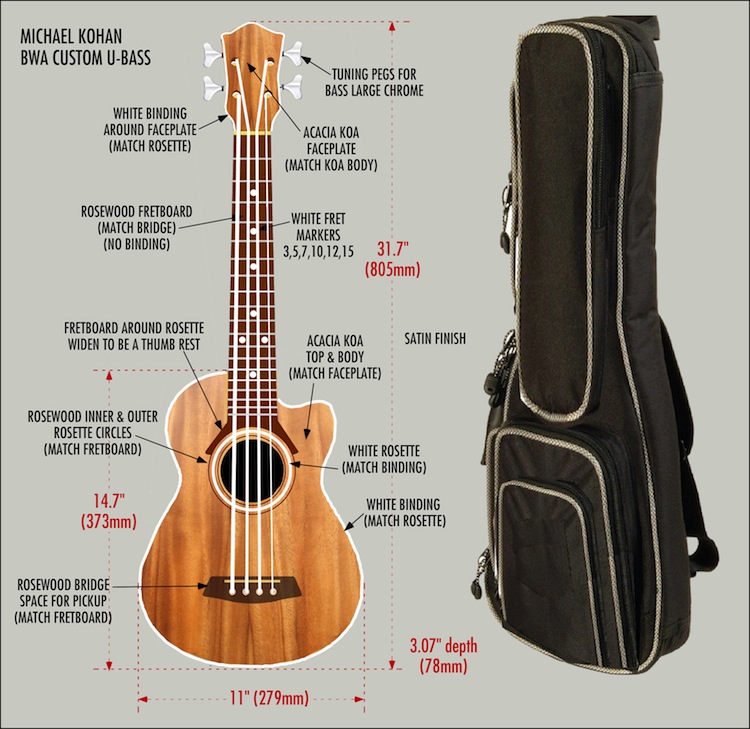Jon Moody
Well-known member
I had a conversation with my good friend, Pete Hilton, a month back and wanted to get some feedback from you fine people that have ordered instruments from builders, mainly how do you order your custom uke?
Many people, I would assume, once they pick out the builder (and the specific model/size of uke), start diving into the specifics: the tone woods, the hardware, the materials, etc.. The builder will respond, the uke will be made and enjoyed by the buyer, who got to pick out as much - or as little - as they wanted.
Conversely, when I went to Jerry at Boat Paddle to have my M-Style made, I said "This is the sound I'm looking for. Will this achieve it?" From there, I relied more on his experience with building his ukes to help me get the sound I want. Later we talked some of the aesthetic choices. For me, the tonal goal was more important, and Jerry nailed it.
So, which way have you approached having your custom uke built?
Many people, I would assume, once they pick out the builder (and the specific model/size of uke), start diving into the specifics: the tone woods, the hardware, the materials, etc.. The builder will respond, the uke will be made and enjoyed by the buyer, who got to pick out as much - or as little - as they wanted.
Conversely, when I went to Jerry at Boat Paddle to have my M-Style made, I said "This is the sound I'm looking for. Will this achieve it?" From there, I relied more on his experience with building his ukes to help me get the sound I want. Later we talked some of the aesthetic choices. For me, the tonal goal was more important, and Jerry nailed it.
So, which way have you approached having your custom uke built?


